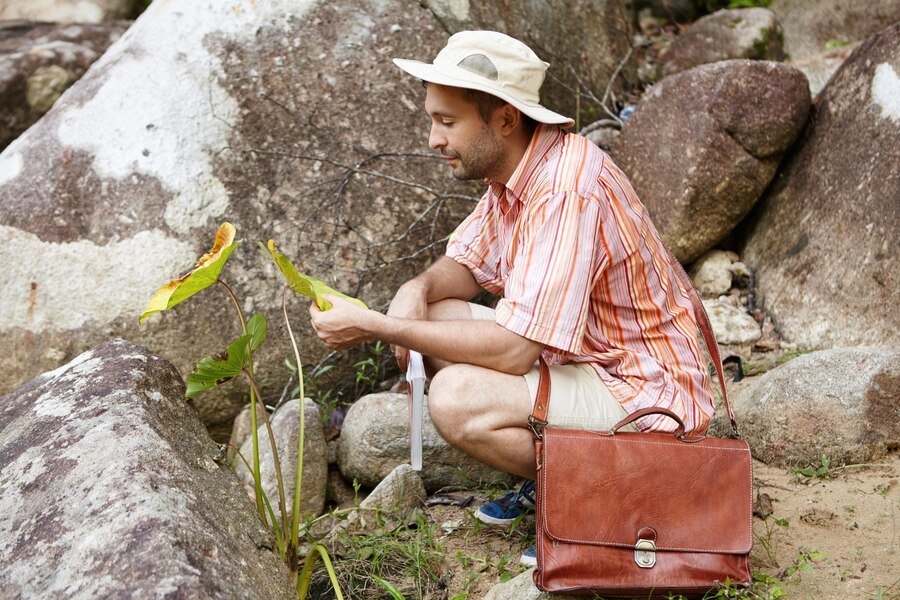Imagine waking up to the sound of exotic birds singing, surrounded by lush greenery and vibrant flowers. This is the magic of tropical rainforest biomes, a paradise waiting for eco-tourists ready to pack their bags and explore the wonders of nature. These biomes are more than just scenic spots; they are vital ecosystems that support a vast array of life. In this blog post, you’ll discover why tropical rainforests are must-visit destinations for eco-conscious travelers and learn how to experience them sustainably.
The Allure of Tropical Rainforests for Eco-Tourists
Tropical rainforests captivate adventurers with their diverse ecosystems and breathtaking landscapes. These dense, green jungles are home to more than half of the world’s plant and animal species. Eco-tourists are drawn to these biomes for their unique beauty and the chance to witness rare wildlife in its natural habitat.
What’s even more appealing is the opportunity to contribute to conservation efforts while traveling. By choosing eco-friendly travel practices, tourists can protect these precious ecosystems from the threat of deforestation and climate change. This makes a rainforest adventure not just a vacation, but a meaningful experience that benefits both nature and local communities.
Tropical rainforests offer endless exploration possibilities, from canopy tours and jungle hikes to river cruises and wildlife safaris. Whether you’re a seasoned traveler or a first-time visitor, each rainforest promises a unique and unforgettable experience.
Understanding the Significance of Tropical Rainforest Biomes
Tropical rainforest biomes play a crucial role in maintaining global biodiversity and climate stability. They regulate the Earth’s temperature, store huge amounts of carbon, and produce oxygen, making them the planet’s lungs. Without these biomes, climate change would accelerate, impacting all life forms.
These ecosystems also serve as a rich source of natural resources like fruits, nuts, and medicinal plants. Many modern medicines are derived from rainforest plants, highlighting their importance to human health and wellbeing. Protecting rainforests ensures that these benefits continue for future generations.
Despite their importance, rainforests face threats from logging, agriculture, and mining. Eco-tourism promotes conservation by providing financial incentives for local communities to preserve their natural resources. This creates a sustainable balance between economic growth and environmental protection.
Best Destinations for Experiencing Tropical Rainforests
There are countless tropical rainforests around the world, each offering its own unique attractions. The Amazon Rainforest in South America is the largest and most biodiverse, home to iconic species like jaguars and toucans. Visitors can enjoy guided tours and boat trips along the Amazon River, exploring the heart of this lush jungle.
In Southeast Asia, the rainforests of Borneo and Sumatra are known for their orangutans and diverse plant life. These islands offer opportunities for wildlife encounters and cultural experiences with indigenous communities. Eco-lodges and guided treks provide sustainable accommodation and education about local conservation efforts.
For those looking to stay closer to home, Costa Rica’s rainforests are a popular eco-tourism destination. With extensive national parks and protected areas, visitors can hike through cloud forests, zipline through canopies, and observe exotic birds. Costa Rica is a leader in sustainable tourism, ensuring that your visit supports conservation.
Eco-Friendly Travel Tips and Sustainable Practices in Rainforests
When visiting tropical rainforests, eco-tourists should prioritize sustainability to minimize their impact on these fragile ecosystems. Start by packing eco-friendly gear, such as reusable water bottles and biodegradable toiletries. Choose accommodations with sustainable practices, like solar power and waste reduction initiatives.
Respect wildlife by observing from a distance and avoiding disruptive behaviors. Stick to designated trails and follow the guidance of local experts to prevent damaging plants and habitats. Support local businesses and conservation projects to ensure that your travel contributes positively to the community.
Consider offsetting your carbon footprint by supporting reforestation programs or traveling by public transport. By adopting these eco-friendly practices, you can enjoy your rainforest adventure while protecting its natural beauty for generations to come.

Wildlife and Plant Species Unique to Tropical Rainforests
Tropical rainforests are teeming with life, home to countless species found nowhere else on Earth. These biomes boast an incredible diversity of animals, from agile tree frogs and colorful parrots to stealthy big cats and playful monkeys.
In the Amazon Rainforest, visitors might encounter the elusive pink river dolphin or the vibrant blue morpho butterfly. Borneo’s rainforests are famous for their orangutans, pygmy elephants, and the world’s largest flower, the rafflesia. Costa Rica’s forests are a birder’s paradise, with resplendent quetzals and scarlet macaws soaring overhead.
The plant life in rainforests is just as remarkable, with towering trees and exotic flowers creating a lush, vibrant canopy. These plants provide essential resources for the local wildlife and play a crucial role in the ecosystem’s health. Exploring these rich biomes offers a glimpse into the wonders of nature and the importance of preserving these habitats.
The Impact of Climate Change on Rainforests and How Eco-Tourists Can Help
Climate change poses a significant threat to tropical rainforests, causing shifts in temperature and weather patterns that affect their delicate ecosystems. Rising temperatures are leading to increased droughts and fires, putting immense pressure on these biomes and their inhabitants.
Eco-tourists can play a vital role in combating climate change by supporting sustainable tourism practices. By choosing eco-friendly travel options and participating in conservation programs, travelers help raise awareness and protect these vital ecosystems. Education and advocacy are also essential tools in the fight against climate change, as they inspire others to take action.
Reducing personal carbon footprints and supporting renewable energy initiatives are additional ways eco-tourists can contribute to climate change mitigation. By making conscious choices, travelers can help ensure the long-term survival of tropical rainforests and the countless species that call them home.
Personal Experiences and Testimonials from Eco-Travelers
Hearing firsthand accounts from fellow eco-travelers can provide valuable insights and inspiration for your own rainforest adventure. Many travelers share stories of life-changing experiences, from spotting rare wildlife to connecting with local communities.
One eco-tourist recounted their encounter with a family of orangutans in Borneo, describing the awe and responsibility they felt in the presence of these incredible creatures. Another traveler spoke of their guided trek through the Amazon, where they learned about the region’s rich biodiversity and the importance of conservation efforts.
These personal stories highlight the impact that eco-tourism can have on both the traveler and the environment. By sharing experiences and tips, eco-tourists can inspire others to explore rainforests responsibly and protect these vital ecosystems.
Tropical Rainforests Await
Tropical rainforest biomes are a treasure trove of natural wonders, offering eco-tourists the chance to experience Earth’s most diverse and enchanting ecosystems. By traveling responsibly and supporting conservation efforts, you can help preserve these precious habitats for future generations.
